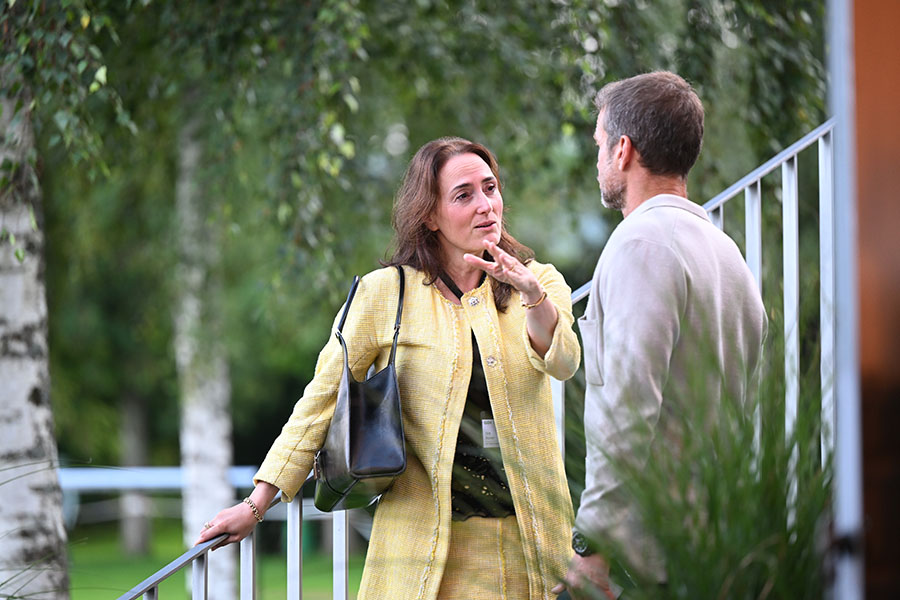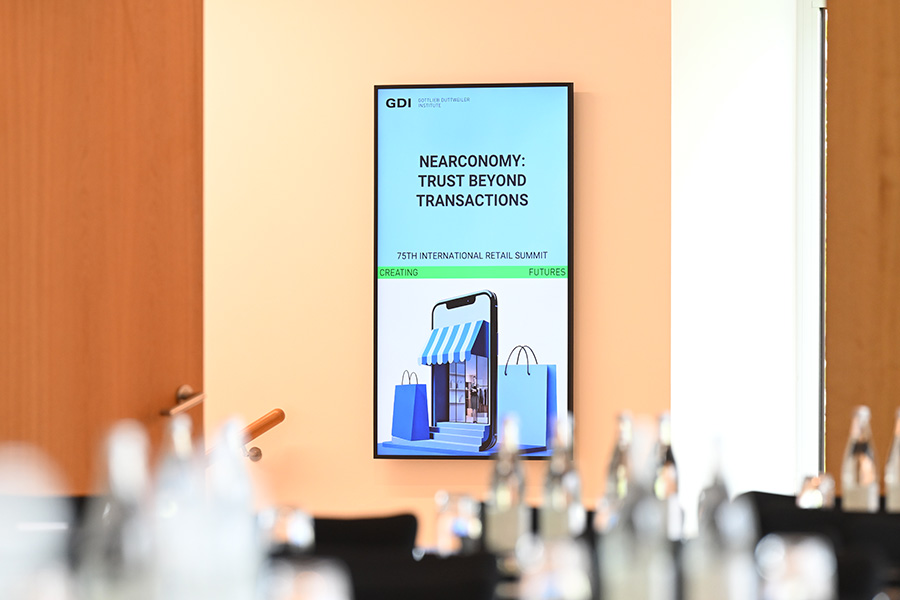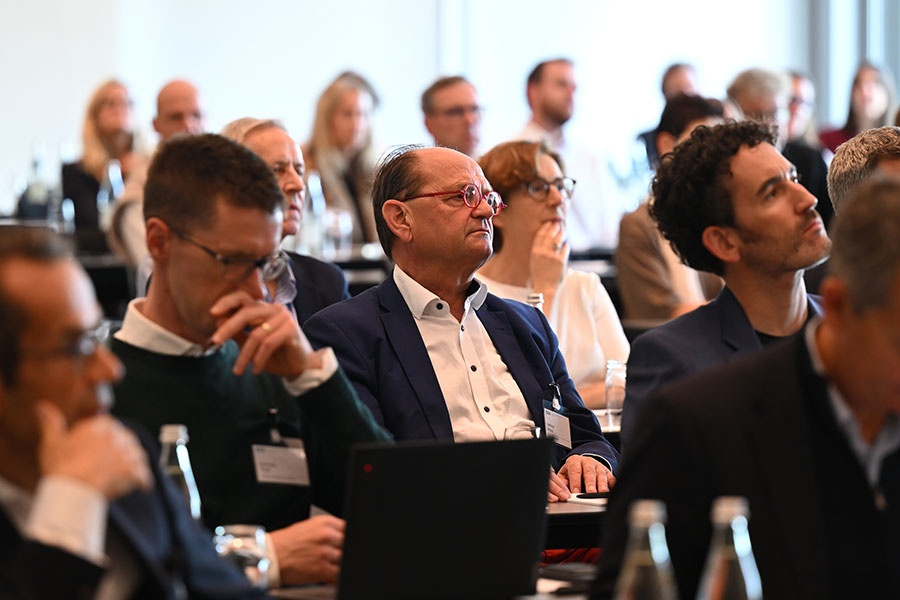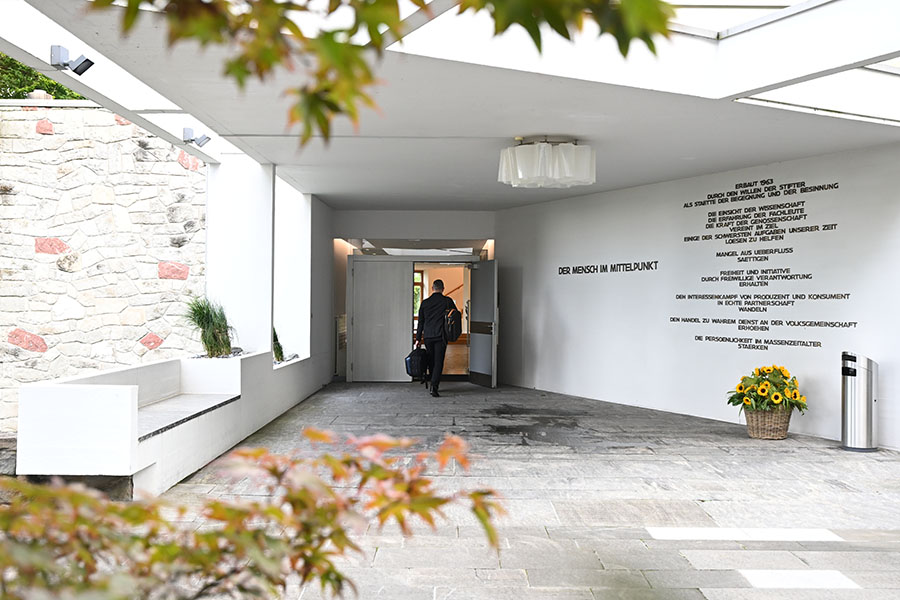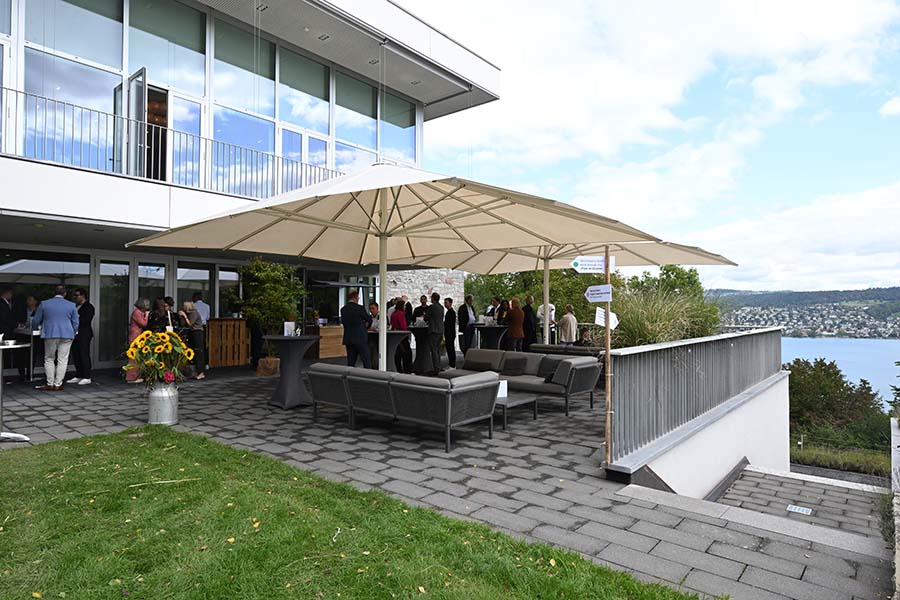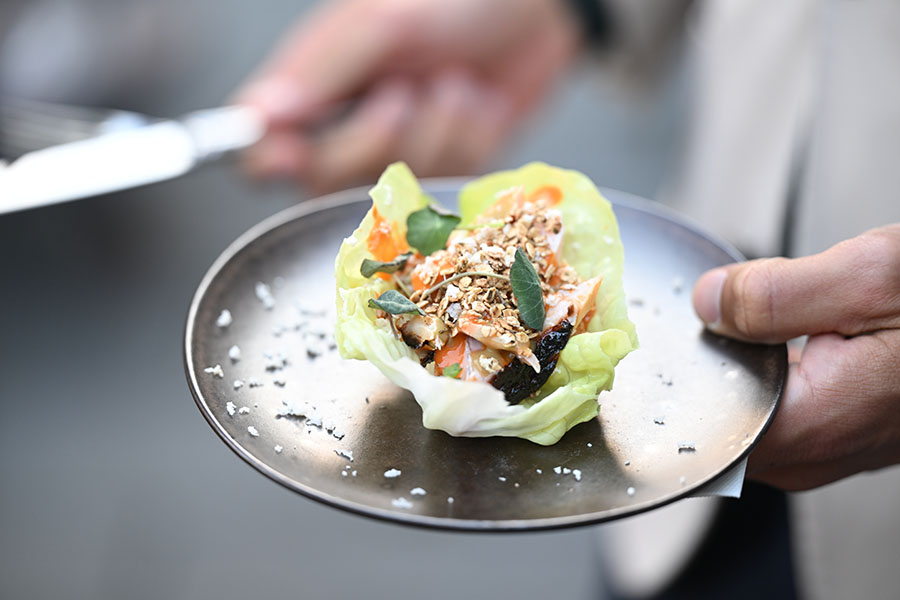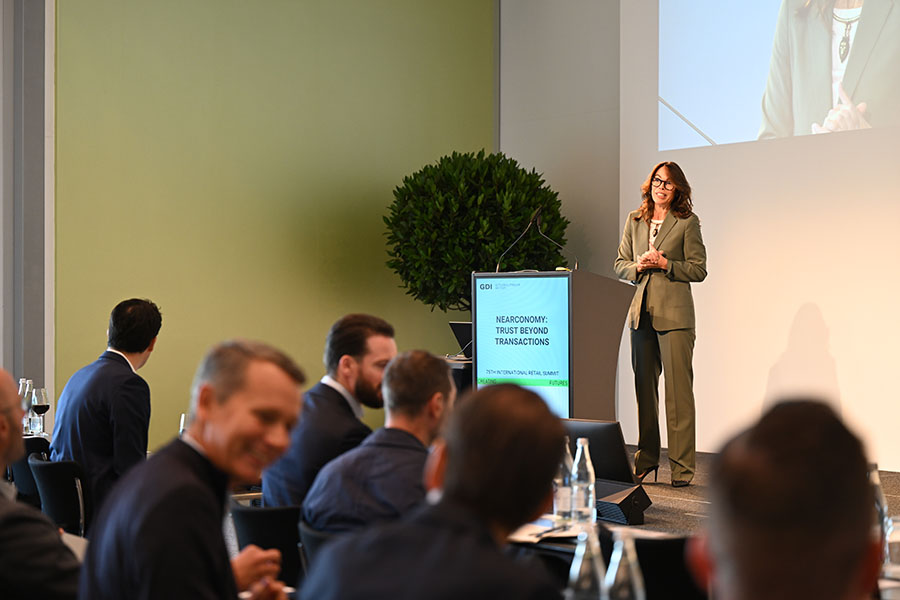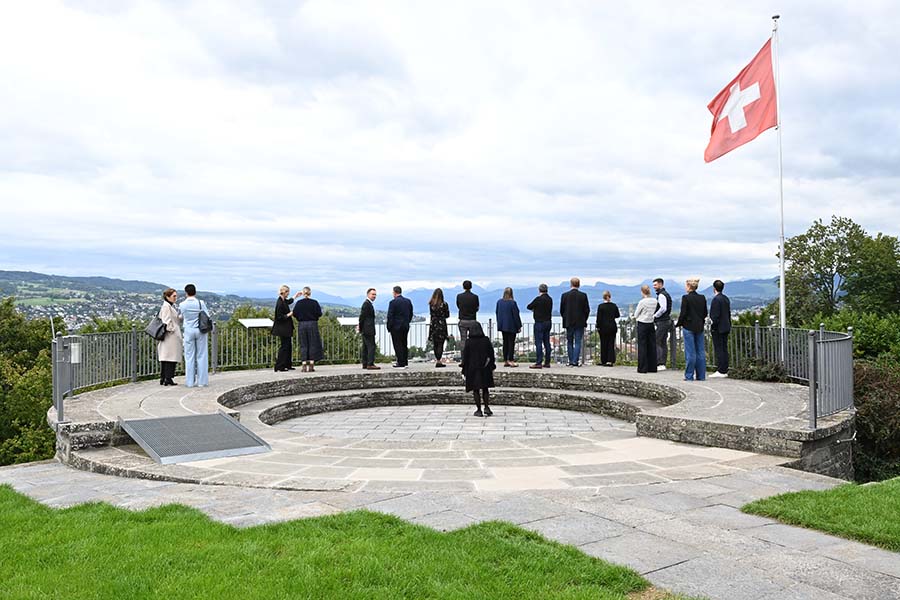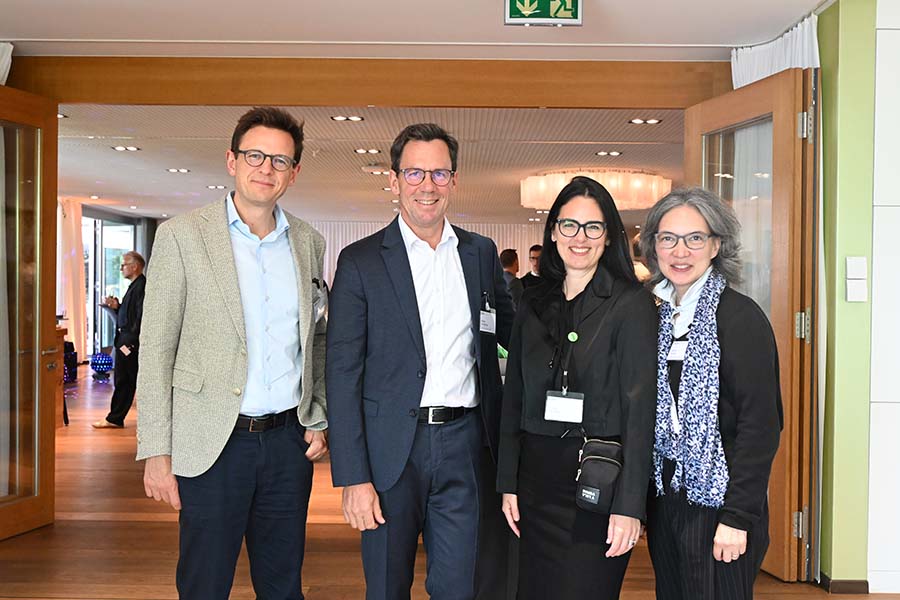What trends are emerging in global retail and how are retailers responding to them? Answers were provided by thought leaders from the areas of research, business and retail at the 75th International Retail Summit, which we have summarised for you.
Customer proximity is of central importance in retail, as Johannes C. Bauer, Head of Think Tank at the GDI, pointed out. Stationary consumption is increasingly shifting to metropolitan areas and closer to home. This means that changing footfall trends and reasons to go shopping are challenging companies to rethink their location strategy and product range.
Valora is a prime example of local customer proximity. Almost the entire Swiss population has a store belonging to the Group within 10 kilometres of their home. CEO Michael Mueller is enjoying great success with the shops offering selected services and products, above all with the "foodvenience" concept – fresh food on the go. However, changing footfall trends are also challenging its operations: just a few years ago, Valora stores were busy in the early morning hours, with customers looking to buy coffee and croissants. Although demand remains high, the range of hours in which people commute has expanded massively. The level of demand has not changed, as Michel Mueller explains: "Customers who only go into the office after 10 a.m. still expect a freshly baked croissant."
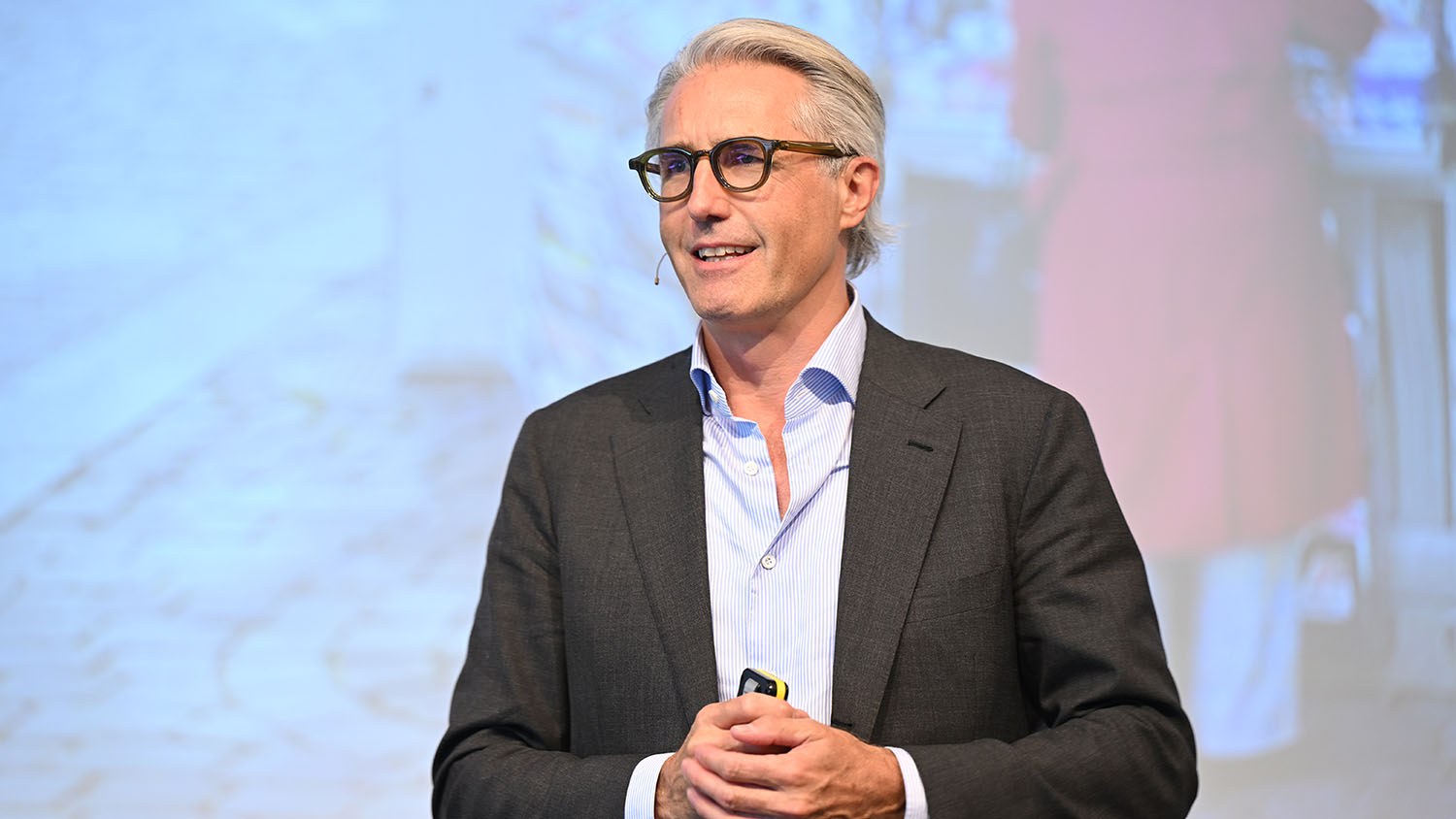
The digital world is also changing: e-commerce platforms and, in future, AI agents are vying for customers. Interactive demand logic requires new concepts to ensure that your own products can also be found and purchased via ChatGPT and the like. This is the only way for retailers to stay in close proximity to their customers digitally. On an emotional level, satisfaction is no longer the only thing that counts. Employees and customers want to find their values reflected in brands and companies. Retailers who define emotional connection as a KPI are benefiting.
The end of the flat world
The current economic and geopolitical situation has changed drastically in recent times and also poses major challenges for the retail sector, as economics professor Beatrice Weder di Mauro explains: " We face the end of the flat world: The era of an increasingly seamless, borderless global world where capital, goods and value chains could move wherever they were most productive and most efficient. comes to an end." With the return of borders, the location and the prevailing institutions there are once again more important for companies than just the market. According to Beatrice Weder di Mauro, a multipolar world will emerge in the future and it will likely be characterised by various alliances and low security guarantees. Companies are therefore well advised to build stable relationships and consider consolidation in order to overcome fragmentation.
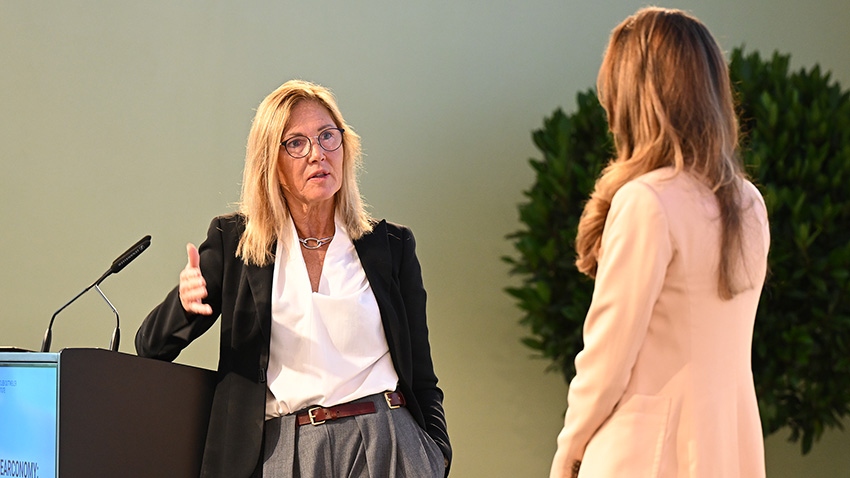
New geopolitical conditions are presenting retailers with new challenges. At the same time, new competitors are entering the market. A look at China shows what retailers need to prepare for and where new opportunities are opening up.
More than just "Made in China"
Sales of consumer goods in China are on the rise, supported by the Chinese government, which wants to transform China from a traditional manufacturing country into a "consumption powerhouse" that drives the global demand market. According to Markus Herrmann Chen of the China Macro Group, the Chinese retail sector is still in its infancy but has high growth potential. This could be an opportunity for European companies to enter the market, for example via local platforms such as TMall and AliExpress. In addition to the domestic market, exports to Europe are also growing. The aim is for the goods produced in China to be increasingly sold directly via Chinese brands. Herrmann advises retailers to prepare for this competition: " Start studying their practices, benchmark yourself against them and creatively think about synergies and opportunities to collaborate."
The booming "emotional economy" shows how dynamically Chinese trends are spilling over into the European market. This includes products and services in the areas of fitness, catering, entertainment and "goods", such as the currently popular Labubu stuffed animals from Chinese manufacturer Pop Mart.
Emotions instead of transactions
Retail has changed. Emotions are becoming more important and the focus is no longer solely on the transaction of value for money. Chris Sanderson, co-founder of The Future Laboratory, sees the future in the three T's – truth, transparency and trust. These values are a good foundation for building successful relationships with customers. The emotional closeness mentioned by Johannes Bauer is also at the centre of Chris Sanderson's work, because retail has nothing to do with logic: " Retail is driven by our human desire and emotional requirement for aspiration, for comfort for security. We want products that excite us and enable us to dream and make us feel better about ourselves." This is achieved, for example, through member-based, exclusive experiences that favour the formation of communities. Brands do not communicate to customers, but with them by means of the collaboration principle. Loyalty programmes are another lever. In the new retail reality, participation should be rewarded instead of focusing solely on purchases. Ideally with a gamification approach and direct comparison with other customers, which in turn strengthens the community and the three T's. Instead of non-transparent loyalty, brands deliver promised experiences through visible and measurable engagement.
The long-term sustainable future therefore lies in building genuine relationships with customers – through shared values, experiences and relevance. This is true even if the customer life cycle is very short.

Competent customer care close at hand: in store and digitally
After four years, the customers of Anna Weber, co-CEO of Babyone, are no longer part of her main target group. This is because the speciality store focuses on products for babies and toddlers up to the age of four years old. Nevertheless, Babyone successfully establishes a very close connection with its customers at the crucial moments and builds a relationship with them. With a franchise system, Babyone provides personalised advice and on-site testing options at 104 locations and ensures a digitally seamless connection with its online shop. Anna Weber and her team ensure emotional closeness through a targeted personalised approach by helping the expectant mothers on their journey with educational content. The traditional family business has thus made the leap to digital proximity and relevance.
Trust is essential for building strong relationships. Customer trust in the brand and in the products and services. The same also applies internally.
Trust as the basis for performance
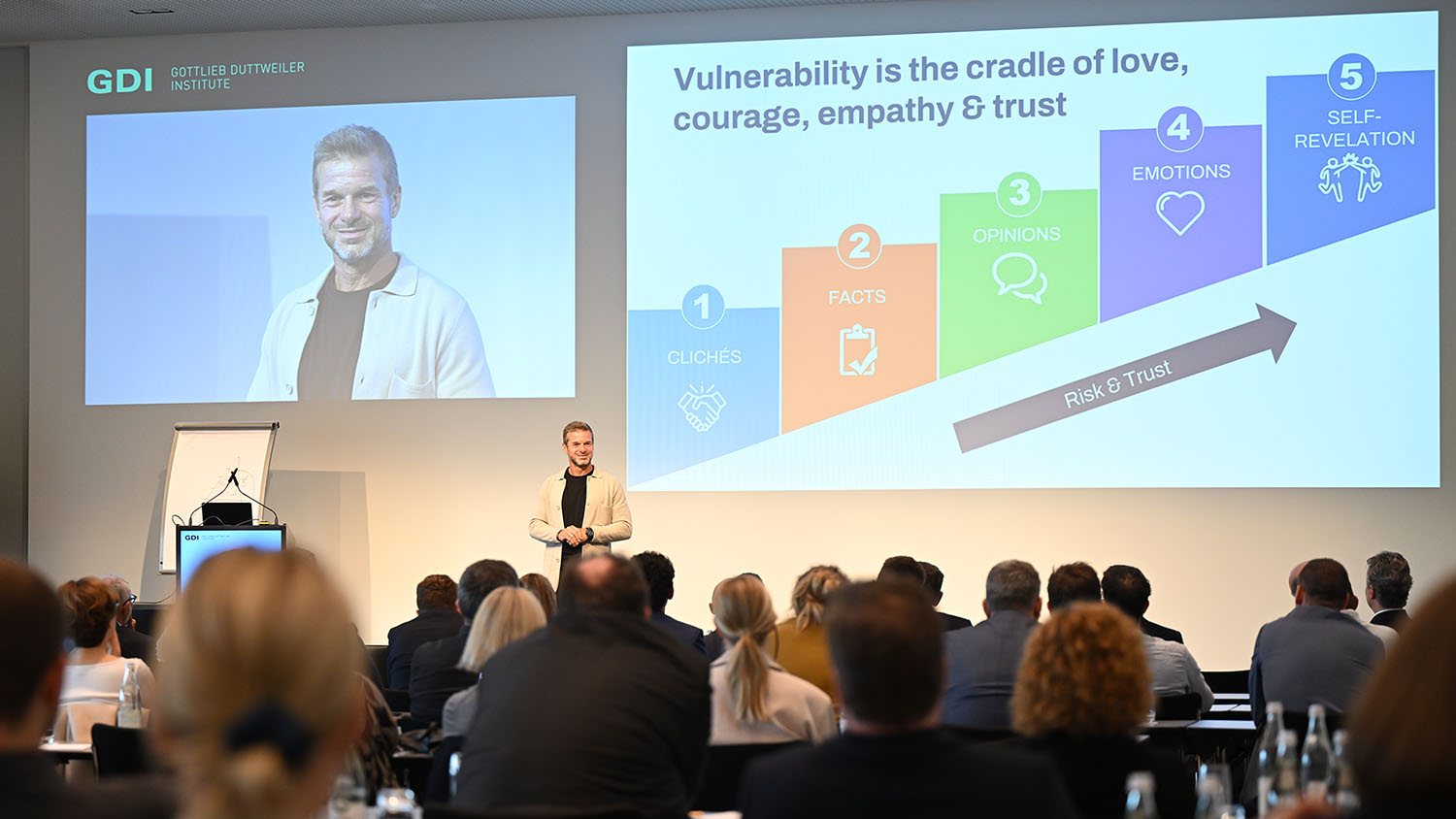
High-performing teams invest in good relationships in order to move forward together and address content-related conflicts so that even better solutions can be worked out. For Wolfgang Jenewein, Titular Professor of Leadership at the University of St. Gallen, trust is the basis for high performance. This is because conflicts can only be addressed if there is psychological security. By employing constructive discourse, everyone in the team makes a contribution, works together to find a solution and takes responsibility for their own role. Supervisors would often hide their identities, not show any weaknesses and only focus on strengths. However, Wolfgang Jenewein is convinced that vulnerability can lead in genuine trust being established.
From conflicting goals to innovation
Antje von Dewitz, CEO of Vaude, provides proof of how successful a culture of trust can be built. For 15 years, the outdoor brand has consistently and systematically focussed on sustainability. In figures, it has reduced emissions by 40% while recording 27% sales growth since 2019. In the textile industry, it encountered major conflicting goals – from a lack of customer demand to producers who did not want to adapt their materials. When the entrepreneur took over the business from her father, she quickly realised that she needed people who would take responsibility and work with her to find solutions. That is why she invests in the corporate culture with active relationship management, training courses in self-efficacy and many other measures that she has developed together with the employees. For Antje von Dewitz, a culture of trust is the basis for success: "This creates a high level of motivation in the workplace, the ability to tackle complex issues and the certainty that we can generate innovations from conflicting goals."
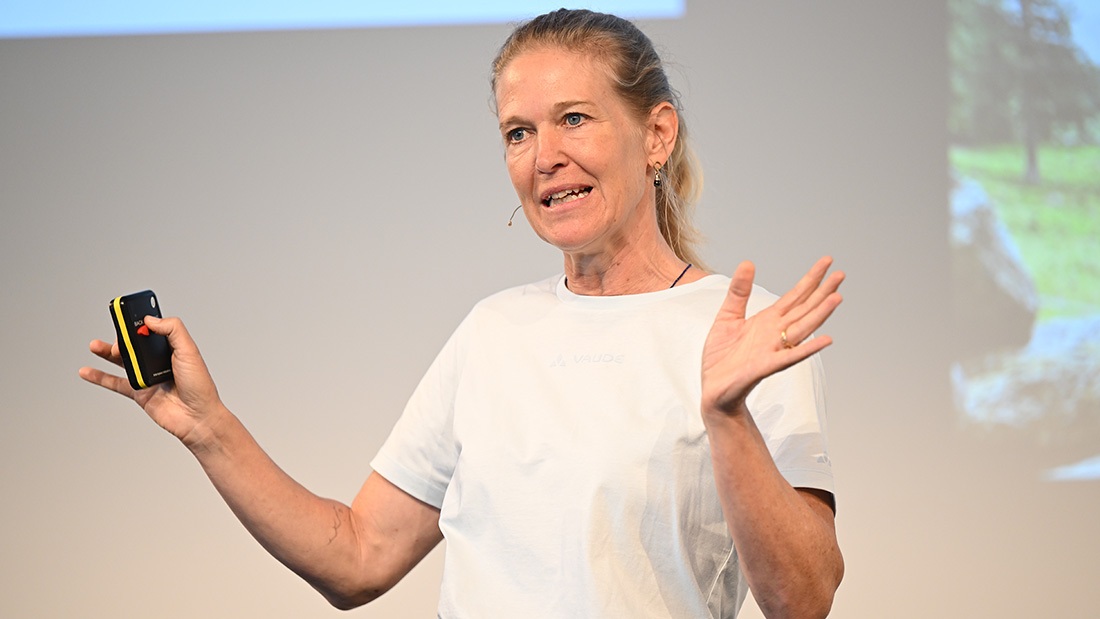
How AI promotes collaboration
The way in which people interact with one another is also determined by their environment. This is because people are embedded in a complex social network. Yale professor Nicholas Christakis is investigating how interactions take place within networks and influence the group as a whole – especially when AI agents are involved. According to his experiments, AI can support people in solving collective challenges such as coordination, cooperation and creativity. He and his team do not use complex AI models such as ChatGPT: "We can afford for our AI to be dumb, because human are smart. All we have to do is make it a little bit easier for humans to work together. We don’t have to replace human cognition, we just have to supplement human interaction."
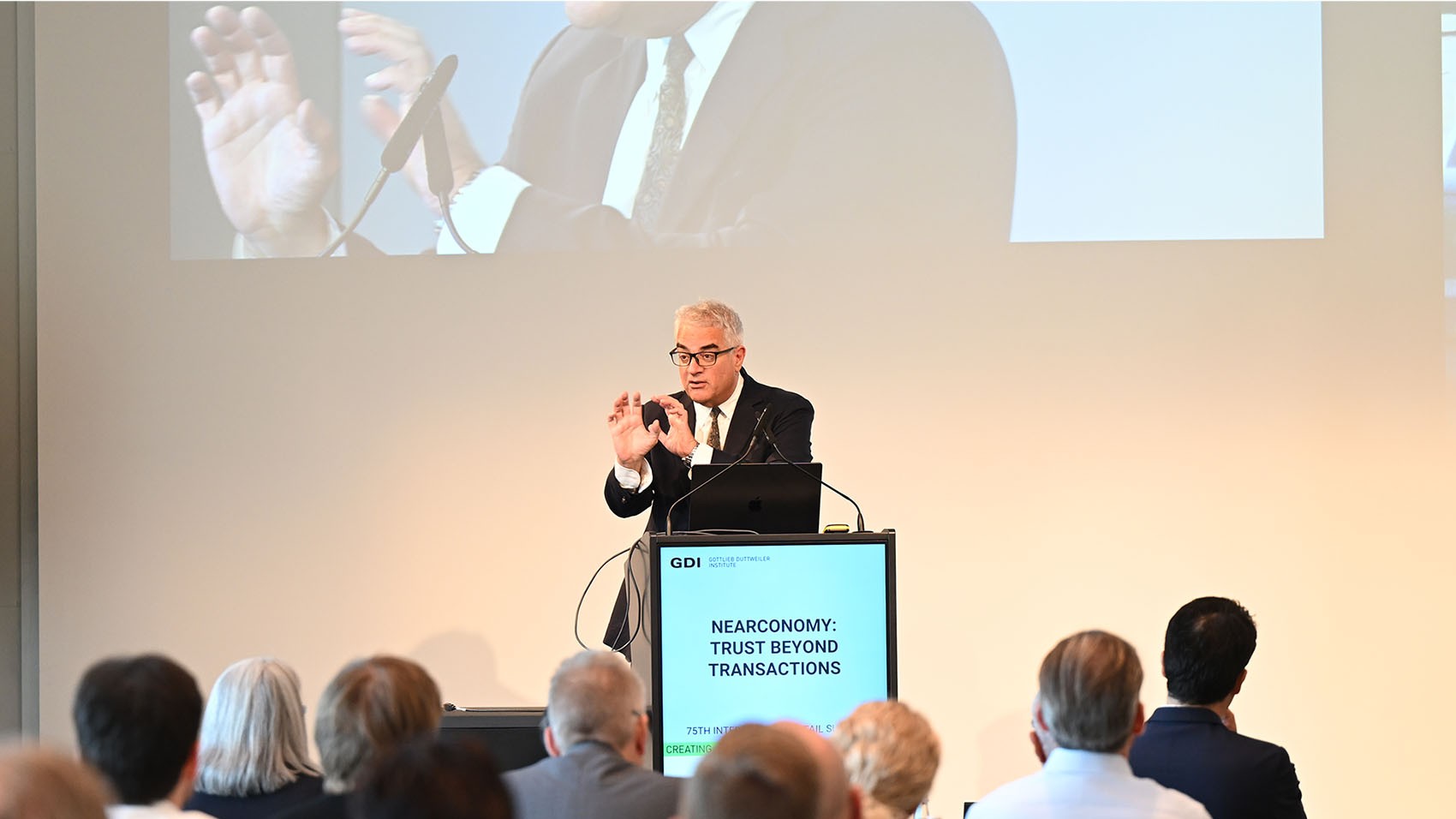
The International Retail Summit was held for the 75th time from 10 to 11 September 2025 at the Gottlieb Duttweiler Institute in Rüschlikon. The summit offered participants numerous opportunities to network in a relaxed atmosphere and provided them with creative culinary surprises.
Save the Date und Ausblick
The next International Trade Summit will take place on September 16 and 17, 2026, in Rüschlikon. Save the date and join again to learn about the latest trends in trade. In the meantime discover our upcoming conferences and network with industry experts and pioneers at one of the most beautiful event venues on Lake Zurich.
